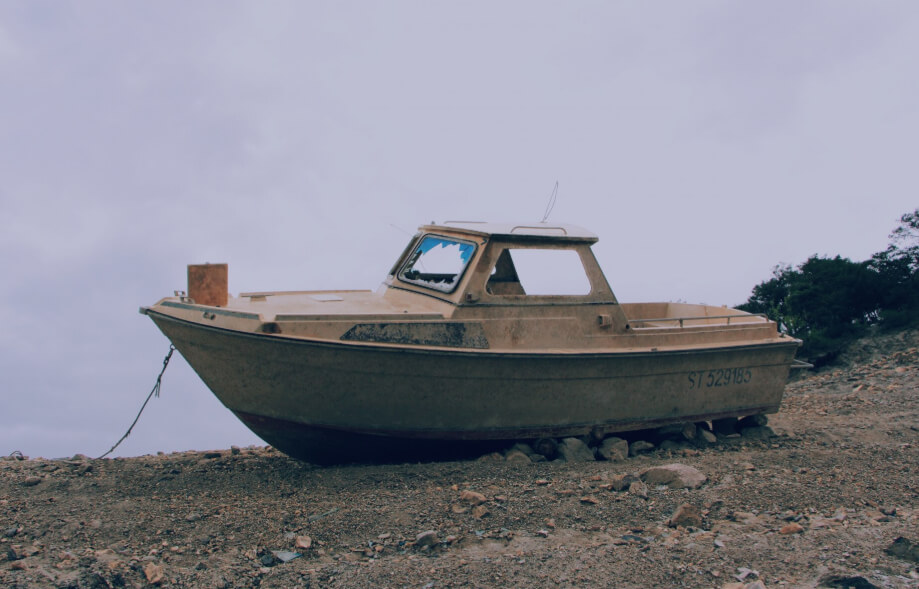Introduction
The Reality of Boating Accidents
Let’s face it—nobody ever plans to capsize. But it happens more often than you’d think. Whether it’s a small kayak or a larger motorboat, nature can flip your adventure in seconds. The first thing what should you do if your boat capsizes is that don’t get panic.
Why Being Prepared Saves Lives
Most boating deaths happen not from the accident itself, but from panic and lack of preparation. Knowing what to do before it happens is what separates survival from tragedy. It is very important therefore being prepared by knowing what should you do if your boat capsizes.
Understanding a Boat Capsize
What Does It Mean When a Boat Capsizes?
A capsize occurs when your boat overturns or tips on its side, making it unusable or unsafe to stay in. It can be sudden or gradual—but it’s always dangerous.
Common Causes of Capsizing
- Sudden shifts in weight or cargo
- Rough waves or wake from other boats
- High winds or storms
- Operator inexperience
- Overloading the vessel
Immediate Actions to Take
Stay Calm and Assess the Situation
Panicking never helps. Take a deep breath and look around. What’s the condition of the boat? Are you hurt? Where are the others?
Account for All Passengers
Do a quick headcount. If someone is missing, call out or look underwater—seconds count.
Avoid Panic and Rash Movements
Splashing, yelling, or frantically trying to swim may exhaust you and create more danger. Slow, steady action is your best ally.
In Short:
If your boat capsizes, stay calm, stay with the boat, ensure everyone is accounted for, wear a life jacket, and signal for help. Only leave the boat if it’s truly unsafe.
Prioritize Your Safety First
Grab a Life Jacket (If You’re Not Wearing One)
If you’re not already wearing a life jacket, find one and put it on ASAP. Most boats are required to have one per passenger.
Stay With the Boat
A capsized boat is easier to spot than a lone swimmer in the water. Don’t swim away unless you’re 100% sure rescue isn’t coming.
Use the Boat as a Flotation Device
Climb onto the overturned hull or cling to it. It’ll help conserve energy and keep you visible.
Know When and How to Call for Help
Use a Marine Radio or Whistle
If you have a waterproof VHF radio, call Mayday and provide your location. A whistle or horn is also useful—three short blasts is a distress signal.
Signal for Help Using Reflections or Colors
A mirror, CD, or shiny object can reflect sunlight and catch attention. Bright-colored clothing also makes you more visible.
Special Considerations Based on Environment
Along with knowing what should you do if your boat capsizes, this is also important to know:
Capsized in Cold Water
Hypothermia is a huge threat. Get as much of your body out of the water as you can. Use the H.E.L.P. (Heat Escape Lessening Position) to preserve body heat.
Capsized in a River or Current
Avoid trying to swim against the current. Stay near the boat, float on your back with feet downstream, and steer toward calm water.
Capsized at Sea or Offshore
Stay calm and signal constantly. Waves can block your visibility, so keep signaling at regular intervals.
Survival Techniques While Waiting for Rescue
H.E.L.P. Position in Cold Water
Curl your knees up toward your chest and wrap your arms around them. This reduces heat loss from your core.
Creating a Flotation Ring with Others
Group together to create a “human raft” that conserves body heat and improves visibility to rescuers.
Rationing Energy and Heat
Avoid unnecessary movement. The more energy you burn, the faster you lose heat and get dehydrated.
When to Leave the Boat
Only If the Boat Is Sinking or on Fire
Your boat is your best chance of rescue. Only leave if staying with it puts you in direct danger.
Swimming to Shore—Is It Worth the Risk?
If you’re far from shore, swimming is rarely a good option. Only do it if you’re strong, sure of the distance, and the boat is unsafe.
Preventive Measures Before You Set Sail
Check the Weather Forecast
Never underestimate a cloudy sky. Weather can change fast, and wind is a major cause of capsizing.
Balance Your Load
Even weight distribution keeps your boat stable. Avoid standing up or making sudden movements.
Know the Capacity of Your Boat
There’s a reason capacity labels exist. Overloading your boat drastically increases the risk of tipping.
Safety Equipment Checklist
Life Jackets for All
Make sure everyone is fitted with the right size. Don’t just stow them—wear them.
Marine Radio, Whistle, and Flares
Communication devices are lifesavers. Don’t rely solely on your phone—it might not work offshore.
First Aid Kit and Emergency Supplies
Always keep a dry bag with essentials like water, snacks, flashlight, knife, and medical supplies.
How to Train for Emergencies
Boat Safety Courses
Local coast guards and boating schools often offer training. They teach real-world scenarios and responses.
Practice Drills with Your Crew
It might feel silly, but drills help create automatic responses that save time when seconds matter.
Legal Requirements After a Capsize
Reporting the Incident
In many areas, boating accidents must be reported, especially if there’s injury, loss, or environmental harm.
Salvage or Removal of Boat Debris
If your boat sinks or leaks fuel, you may be legally responsible for cleanup and recovery.
Psychological Impact of a Capsize
PTSD and Water-Related Trauma
Survivors may experience nightmares, anxiety, or even fear of returning to the water.
How to Rebuild Confidence
Take baby steps—maybe start with short rides or boating with professionals until you feel secure again.
Conclusion
A boat capsize can go from scary to deadly in minutes—but you’re not powerless. Knowing how to react, what to prioritize, and how to prepare beforehand can mean the difference between panic and survival. So next time you hit the water, take these steps to heart. Because while you can’t always control the waves, you can control how you ride them. Now you get the answer to what should you do if your boat capsizes.
FAQs
Q1: Can I flip the boat back over?
Only if it’s a small craft like a kayak or canoe. Larger boats require professional salvage.
Q2: How long can you survive in open water?
It depends on the temperature, your health, and whether you have flotation. With a life jacket, you may last for hours or even days.
Q3: What should kids do if the boat flips?
Teach them to hold onto the boat, wear life jackets, and stay calm. Practice drills in advance.
Q4: What if I don’t know how to swim?
A life jacket is critical. If you’re wearing one, just float and cling to the boat—don’t attempt to swim.
Q5: Is it illegal to leave a capsized boat?
Not typically, but abandoning a vessel that causes environmental damage or blocks navigation might lead to fines or responsibility.
Just a quick note:
If you’ve read this far, thank you. I truly hope you never have to face a capsizing situation—but if you do, even remembering one tip from this article could make all the difference. Stay safe, enjoy the water, and always look out for each other out there.
For more informative articles: Visit our website.


